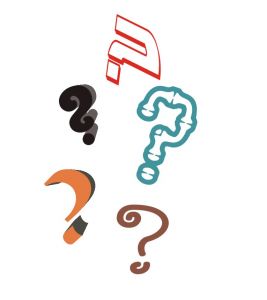
Small Business Bookkeeping Help
Some Questions and Answers
As a home based business owner in Canada (or the U.S.), small business bookkeeping is required by law.
Questions arise as you are working about how to do some aspect of small business bookkeeping. The articles on this site are meant to help you work through some of the inquiries you may have.
Today I will continue with this free bookkeeping training by presenting some commonly asked small business bookkeeping questions and answers.
Advertisement
Highlights Of This Post
Here are quick links to the small business bookkeeping questions on this page that I have written up so far. Forum questions are found mid-page.
Small Business Bookkeeping Records Organization
- What information does my accountant need at year end?
- I want to switch bookkeepers. What information do I need?
- I have just started my own business. How do I organize my receipts?
- How do I get started on keeping my own books?
- Who has ownership of the electronic data files?
- What is the best way to deal with credit card bills / receipts?
- Can I prove my tax deductions with my bank statement?
Small Business Bookkeeping Reports
- What does an aged payable report tell you?
- What is the full disclosure principle in accounting?
- Can a non-CA (chartered accountant) prepare a Notice to Reader set of financial statements?
Small Business Bookkeeping Account Relationships - Expenses vs Assets vs Liabilities
- Why don't liability payments show up on the income statement?
- Are income tax expense and income tax payable the same thing?
- Where does amortization go on the income statement?
- What is the normal balance for accumulated amortization?
- Are customer deposits an asset or a liability?
- Why is inventory not an expense?
Small Business Bookkeeping Questions
- Can I include any car maintenance, or services I have had done on my vehicle?
- Can I pay myself for doing bookkeeping? I am a sole proprietorship.
- How do I enter HST/GST into the general ledger?
- What is the bookkeeping entry to record a term deposit?
- Are cheques an office supply on the chart of accounts ?
- Which accounts go to a zero balance once you close the books for the year?
- How do I figure out accumulated amortization (accumulated depreciation) on vehicles?
This Bookkeeping Forum Is Now Closed
Small Business Bookkeeping Discussions In Progress
Here are small business bookkeeping related topics ... that have been covered in The Bookkeeping Forum. While you can no longer post new entries, feel free to check them out.
Late Filing Penalties
What is the best account to record late filing penalties in or should there be an account designated specifically to this? I usually create a …
Fix monthly payable
How can I adjust our health insurance expense in the current month for problems in the past? Past bills dated in a certain month were entered as the 1st …
Delivering Business Documents to your Accountant
My accountant has said that her clients generally drop off their accounting documents in a secured package to her residential building concierge and this …
Depreciation of a New Building
The organization that I work for, just started operating their new building in September 2015. There are still small expenses to purchase standing lamp, …
Converting Inventory to Supplies Expense or Fixed Asset
I recently opened a 3D Printing business - home based.
There are 3 components to my business:
- selling of 3D Printing products,
- 3D Printing …
Credit Card Payment Error
I paid my credit card bill twice so now I have balance on my credit card. How do I record the extra payment? You didn't say what accounting software …
Owner, Home Building Company
Having difficulty with getting the following transaction(s) recorded:
$100 construction loan draw
draw is to pay $100 in building costs for a home …
Year End - First Year Bookkeeper
What do I need to do for fiscal year end?
I need a checklist of things that I need to do. What forms do I need from the government? What entries do …
G/L Out of Balance
I am ready to do August month end and close the G/L for that month, but, when I tried, it said my G/L is out of balance!
Where would I even begin to …
Service Charge from Vendor
I was wondering if someone could tell me how to record a service charge from one of our vendors.
We currently have a balance of 8000.00 with them and …
How to Book Investment Losses in QuickBooks
My Tax Agency report shows items under Sales and Other Revenue (line 101) that have nothing to do with HST. I am wondering how to remove them. These …
Business Use of Personal Lines of Credit
Hi There
If I use my personal line of credit to help fund my business does the line of credit get included as a business liability or do I add it to …
Accrued Management Fees
In F2014 we identified $50,000 in management fees to be accrued. A JE was entered at the end of F2014 debiting our management fee account and crediting …
Forfeited Deposit
I work for a construction company and we deal in supply and installation of home improvement products.
A client ordered products from us to be supplied …
Refund from Bank Loan
Hi,
My question is that on a Line of Credit account I have, I received a "Rebate" for $500.00 from the bank. So basically $500 reduced from the loan. …
Growing Business
I have owned and operated a small 'Property Maintenance' business for the past 12 years, offering lawn care, snow removal and housekeeping services.
…
Reentering Data Due To No Backup
When entering expenses incurred does everything that is on our bank statements and credit card statements HAVE to be in my accounting program? What about …
Monthly Financial Reports
We require monthly financial reports. What is a reasonable date to expect this?
We currently deliver by the 20th of the following month; this seems …
Charging a Vendor Labour Costs for Inspection and Quarantine
Hi All,
My company recently received defective product from our Vendor. We are charging the Vendor labour costs for inspection and quarantine.
What …
Construction Accounting
My husband works for himself in construction. I do his bookkeeping, he works alone.
I am wondering about billing customers when there are materials …
Leasehold Improvements
What constitutes a leasehold improvement?
What is the advantage to record something as leasehold improvement versus operating expense? Sharon, …
Provide Receipt or Not
Do I by law have to provide a receipt for payment of a service business (hairdressing or house cleaning for example) if my annual income is under $30,000 …
Purchase Order and Accounting Cut-offs
I have a P.O# dated for the last day of the month and product will not be received until the first do I enter the inventory and costs and GST on this before …
Recording Maintenance Plans and Warranties
What would the entry be to record payments received from customers for providing a one year, product maintenance plan/warranties? Hi Angela,
…
Buying Antiques at Yard Sales
How do you account for cash inventory purchases made at yard/garage sales without receipts? Philip,
I would keep a business journal / log …
Bank Reconciliation and Cashing of Stale Dated Cheque
Recently, one of our vendors deposited our cheque in bank which was dated last year and the bank cleared it.
Assuming the bank would consider the cheque …
Running A Daycare Business In Your Home
My wife is starting a day home and has one child for now. I’ll be looking after organizing all the receipts, etc.
Would you know a good accountant …
CCA Class 8
I have an invoice totaling $1,559.34 which includes a desk for $400.00; a credenza for $300.00; etc. Each item is less than $500.00.
Should I put it …
HST Meals
What is the formula for extracting the HST in Ontario for a receipt from a restaurant including the tip? Is it calculated on the total amount for the …
Sale of Capital Assets
How should the sale of capital assets be entered? Hello No Name from No Country,
The sale of capital assets is discussed in my article called …
Funds Received In Trust
Management company and funds ear-marked for travel expenses.
Hello, my newest client manages music groups, mostly indie bands.
Occasionally she …
Monthly Adjustments
Are monthly adjustments for payroll, accruals, deferrals, etc... needed?
If we don't do these adjustments at month end, does that mean the financial …
Billing Date
Hi,
What date should we use for the bill? The date when the service happened or the date we received the bill?
If we use the date the service happened, …
Bookkeeping Entry for Level Payment Plans
How do I make entry for utilities that have you on level payment plans? Hi John,
I'm not certain what a level payment plan is ... but I'm guessing …
Consignment Store
Hi!
My friend has started a small consignment store and wants me to bookkeep for her. I do bookkeeping for my husband's business which is a lot different …
Donating Gift Certificates
How do you track the gift certificates you've issued as donations without overstating your expenses, ie reduction in inventory and promos? Excellent …
Recording Client List Purchase
Hi,
When I started my business, I paid my former employer $2,500 for her client list. How do I record this? Hi Laila,
John Day, MBA has …
Deduction Totals
When calculating the total costs of things like gas, meals, or office equipment, is the total before any taxes paid at time of sale? Or do you base each …
Fixed Asset Recognition
Hi Madam,
I have some practical questions in relation to fixed assets.
1. Our company paid 50 % of total cost of sign board. In Jan 2010, we received …
Banking Assists
Business Record Keeping
I've been looking at your site and come to realize that you're also in the online business - as am I - so hopefully you'll be able to answer my question …
Patronage Allocations
Gas Refund via Patronage Allocations (for Sole Proprietor)
The instructions state: "If you are claiming some of your purchases as expenses against income, …
Sale of financed cattle
Hi, I don't know how to record these transactions: we bought cattle on a loan. Then we sold the cattle, paid the loan and the interest off and made money …
Retained Earnings Account
Proprietorship
Account > Retained Earnings - Previous year
I want to get a better understanding regarding this account.
Does this account accumulate …
Deposits on Assets
Hi
Canadian Business
I just want to confirm that I am posting the transactions correctly.
A new asset was ordered in December 2010 and delivery …
Contingency Account
What entries are required at year end to set up a contingency fund? Hi Colleen,
I'm assuming that you want to set up a contingent liability …
Deposits to Bank Accounts
I'm recording my cash/cheque transactions as follows (I'm not using Quick Books):
1. I'm maintaining a cash account which I'm using for currency & coin …
Invoice Date or Payment Date
Enter invoice date or the date the cheque is cashed?
Hi all,
I have run across a purchase invoice which is dated on July 25, while the date the …
Personal Money - Company Bills
Transferring personal money to pay company bills
Hi,
I have been buying material and supplies for my small business. I also got a farm loan to …
Loan Instalments to Pay Insurance
Loan paid insurance company directly, to be paid back in instalments from bank. How to record initial loan and payment of instalments?
Need to spread …
Prepaid Income and Expenses
We are a community league, we do registrations for Outdoor soccer in March and recieve money. We also send a cheque for registrations in March as well. …
Bankruptcy and Customer Deposit
A private company received an amount on deposit as an advance against their contracting work, but during the contract work, the other company went bankrupt. …
Owner Contributions
I am too little to have retained earnings as defined in Wikipedia, but I saved up money to "keep" in the business. Where do I record this? At the moment …
Bad Debt
Please differentiate between bad debt and provision for bad debt. Hi Treat,
Generally, bad debt refers to bad debt expense (on your income …
Different currencies
The company (corporation) is working with US and Canadian dollars. It has two bank accounts (for USD and CAD), but also very often the owner takes cash …
Closing a Partnership
The question came up a while back on how to close the books of a partnership . I had to do a bit of research.
I am going to be honest here. I have …
Customer Deposits
Hi,
We run a small B&B.
If I receive a payment in 2009 for a 2010 booking - do I report the payment as income in 2009 or 2010?
After all the …
More Commonly Asked Bookkeeping Questions
Why don't liability payments show up on the income statement?
The easiest way to answer this question is to layout the bookkeeping entries so you can think your way through to answer your own question by figuring out the debits and credits ... and which account flows to which financial statement.
Your bookkeeping entry when you make a liability payment ... such as a bank loan ... looks like this:
DR Bank Loan for the principal only (this account is on the balance sheet)
DR Interest Expense (this account is on the income statement)
CR Cash in Bank (this account is on the balance sheet)
The first thing you should notice when you look at the liability payment bookkeeping entry is that only the interest expense is recorded to the income statement.
The principal portion of your liability payment is recorded to a balance sheet account ... and it reduces the amount you amount you owe. This means it is not an expense ... so it won't show up on the income statement.
Remember, don't confuse cash flow with profit.
Makes sense? You can use this method to figure out most of your small business bookkeeping dilemmas ... or when there is confusion on how accounts interrelate to each other.
How do I figure out accumulated amortization (accumulated depreciation) on vehicles?
For small business bookkeeping purposes, the easiest method to calculate amortization on vehicles is using the straight line method. The formula is:
Original Cost (OC) - Salvage Value / Estimated Useful Life = Amount to be Amortized Each Year
For example $27,000 - $3,500 = $23,500 / 8 years = $2,937.50
Accumulated amortization is the amount amortized to date. This value can be found on your balance sheet as a contra account to your capital assets.
So in the above example, if this was the third year the business had owned the vehicle, the accumulated amortization account should be equal to $2,937.5 x 3 years = $8,812.50.
The net book value (NBV) of the vehicle would be OC - accumulated amortization which in this example would be $27,000 - $8,812.50 = $18,187.50
Which accounts go to a zero balance once you close the books for the year?
After you clear your closing entries to the Income Summary Account, all the income and expense accounts should be at zero ... so you start your new year with no profit or loss.
So the bookkeeping entries would be DR Revenue accounts CR Income Summary ... and DR Income Summary CR Expense accounts for the exact amount in each account.
The Income Summary account gets cleared to Owner's Equity if you are a sole proprietor or Retained Earnings if you are a corporation. The bookkeeping entry would be DR Income Summary CR Owner's Equity if you were profitable ... or DR Owner's Equity CR Income Summary if you operated at a loss.
If you use the small business bookkeeping software QuickBooks®, no closing entries are needed as QuickBooks® handles it automatically for you.
Dividend and drawing/contribution accounts should also be cleared to Owner's Equity / Retained Earnings ... and have zero balances. QuickBooks® does not handle these transactions automatically so you must journal them.
Are cheques an office supply on the chart of accounts?
When you order cheques from the bank or cheque supplier, I code the expense to bank charges. I see it as a cost related to operating the bank account. Isn't small business bookkeeping fun?
What does an aged payable report tell you?
An aged accounts payable report tells you how much money the business owes to vendors (unpaid bills) ... and how slowly or quickly they pay their bills.
It is a very useful small business bookkeeping tool. Businesses use it to manage their cash flow and keep track of trade debt outstanding.
The report is generally presented alphabetically by vendor ... and categorized into columns by due dates ... current, 30 days past due, 60 days past due, 90 days past due, total past due.
When bills are past due, vendors may postpone delivery of supplies / services until payment arrangements are made. This puts the business at risk for interrupted supplies ... which could lead to loss of customers.
Are income tax expense and income tax payable the same thing?
No they are two different accounts. Don't you just love small business bookkeeping! ;0)
Income tax expense is reported on the income statement ... while income taxes payable is reported in the current liabilities section (amounts due within 365 days) of the balance sheet.
To help you see the relationship, here is a simple small business bookkeeping entry for income tax booked at year-end:
The expense side of this entry shows the amount of income tax relating to the time period showing on the income statement - let's say for the year 2009.
The balance sheet entry reflects the fact the income tax expense is not due until April 30, 2010. When the amount is due, the bookkeeping entry to pay the Receiver General would be:
Paying your income tax usually involves these two separate entries, because you are not calculating the amount for 2009 until 2010. This means you would NOT book an entry in 2010 paying 2009 taxes as follows:
This violates the matching principle, a basic bookkeeping guideline under Canadian GAAP.
Can I pay myself for doing bookkeeping? I am a sole proprietorship.
Yes and no. As a sole proprietor, you pay yourself by taking what is called an owner's draw ... essentially withdrawing some of your business profits from the business for your own personal use.
You are NOT treated like an employee for tax purposes.
You are NOT allowed to "bill" your business YOUR labor though, whether it is for bookkeeping or anything else. Sorry :0(
How do I enter GST/HST into the general ledger?
The answer to this question depends on whether your books are manual or computerized ... and if you are an GST/HST registrant or not. Follow the link that is appropriate for your situation.
If you are a GST/HST registrant, I explain how to setup your general ledger for a manual set of books.
I am a GST/HST registrant with a manual set of books.
If you are an HST/GST registrant, I explain how QuickBooks (a small business bookkeeping software program) handles the value added sales tax.
I am an HST/GST registrant using QuickBooks.
If you are not an HST/GST registrant, I explain how to record sales taxes paid in your general ledger. Although I use QuickBooks as an example, the same method applies for a manual set of books.
I am not an HST/GST registrant.
I just started my own business. How do I organize my receipts?
I have written two articles on file organization.
The first article, Home Based Office Filing System, gives you choices and guidelines so you can match your filing system to your own style.
The second article, A Portable Document Filing System, is great for small business owners who do business from their vehicle or away from their home office.
I have been slow to embrace the electronic storage of receipts ... but right now I am looking into portable scanners such as Neat Receipts. It looks like an efficient way to keep track of all the receipts ... but I don't think I'll toss the paper just yet, even if I go this route to organize my receipts.
The thing to keep in mind when doing small business bookkeeping is you want to have an audit proof record keeping system.
You may also find my article on Just Starting Your Own Business? helpful. It gives a list of resources to guide you through a successful startup.
I need to know how to start keeping books. I work alone and want to do my own small business bookkeeping. What do I need to do? How do I start?
If you are running a home based business, where you start can be an obstacle if you have not yet set up your books yet.
I created a list for you in How to Get Started Doing Small Business Bookkeeping.
Before you start on the list, you may want to print out the tax form T2125 Statement of Business or Professional Activities. This form shows you what you need to report annually to the CRA. It is where you need to end up no matter what you choose to do.
If you think the information on this site should be organized differently, I'd be interested in your ideas and opinions ... because I tried to organize this site thinking like a small business bookkeeper who needs to get their hands on certain pieces of information quickly :0) ... not a business owner just beginning their books :0(
This site is growing .. and it might as well grow to suit your needs ... so contact me with your ideas/needs.
Where does amortization (depreciation) go on the income statement?
Amortization (depreciation) is an non-cash expense on your income statement.
Its purpose is to allocate the usage of your assets over time by matching a portion of its cost with the revenues the asset is earning in a specific period.
In small business bookkeeping, you would probably only book this adjusting entry at year-end but you could book it monthly or quarterly.
Its normal balance is a debit balance. If your balance is a credit balance, it would show up as negative on your income statement. If this happens, it is most likely you have booked your journal entry incorrectly. Here are two possibilities:
- You have sold an asset and selected the wrong account when trying to remove the accumulated amortization from your books. Here's how to book the sale of an asset.
- You have booked your amortization entry in the wrong direction. Go in and reverse your entries.
You can learn more about amortization in this sidebar article including how to record the bookkeeping entry for amortization.
What is the normal balance for accumulated amortization (depreciation)?
The normal balance for accumulation amortization (depreciation) is a credit balance.
Assets are normally amortized on a straight line basis or a diminishing balance basis for GAAP purposes.
Assets are amortized at the CAA rate for tax purposes.
This means the amortization expense and balances in your financial statements will be different than your tax return unless your statements are prepared on a tax basis.
You can learn more about this account in the side bar Should It Be Depreciated or Amortized?
You may also be interested in a method that will help you learn your debits and credits.
What is the full disclosure principle in accounting?
This accounting principle is sometimes referred to as The Reporting Principle.
Full disclosure says any financial information that affects the financial statements must be included in the financial statements at inception. If the issue or item does not directly affect the financial statement, such as a pending law suit, it is to be disclosed in the notes.
You can find information about how the full disclosure principle affects capital leases here. Two reductions in disclosure are ... there is no requirement to disclose government remittance amounts in arrears or management compensation.
GAAP Update
Disclosure ... and ASPE
Have you wondered if the new Accounting Standards for Private Enterprise (ASPE) that came into effect on January 1, 2011 affected the disclosure requirements for small business bookkeeping and financial reporting?
Grant Thornton (www.grantthornton.ca), in their Catalyst Winter 2010 newsletter explains that the new standards reduce the amount of disclosures under our existing GAAP by about half. The reason for the reduction is that many of the disclosures pertained to large public companies ... which will be switching to IFRS in 2011. One caution pointed out in the newsletter is that "fair presentation of financial information is still important". What this means to you is that you are still obliged to disclose information not stated under the new standards ... if it provides more clarity about your business transactions to the users of the financial information.
Are customer deposits an asset or a liability?
Good question. While the cash you receive is definitely an asset, there is a corresponding liability that occurs when you accept the cash.
To be in conformance with GAAP, customer deposits are a liability because they represent unearned revenue. If for some reason you could not perform the service or deliver the goods, you would have to return the funds.
If you book the deposit as a credit against your customer's accounts receivable, it will still show as a liability to you, because there would be a credit balance in the accounts receivable.
To learn more about the two acceptable ways, from a small business bookkeeping perspective, to book a customer deposit, you can check out these two places on this site:
When doing small business bookkeeping, why is inventory not an expense? Why is inventory not tax deductible?
The goods in inventory have not been sold ... so they have not earned you any income ... yet. That is why they are NOT an expense or tax deductible.
However, once you have sold the inventory, the cost of the goods sold (COGS) ARE expensed and tax deductible.
What is the best way to deal with credit card bills / receipts?
You have to work out a system that works for you ... and it may be trial and error until you have something that you are comfortable with.
Here are two articles you may want to read to help you on your way to the file organization of your credit card bills / receipts, along with your other bookkeeping paperwork ...
Small Business Recordkeeping System
A Portable Document Filing System
But if you want a tested and proven system that you can learn in 30 minutes, then check out my article on How to Organize Your Files In a Box. Your bookkeeper will love, love, love you!
Can I prove my tax deductions with my bank statement?
Are credit card statements audit proof for taxes?
Not totally because in small business bookkeeping, the auditor wants proof.
Your bank statement and cancelled cheques will prove proof of payment but NOT proof of purchase.
A payment to a vendor does not tell the auditor what you bought ... a receipt does.
You need BOTH proof of purchase AND proof of payment to satisfy the auditor.
You can read more about what you need for an official receipt here.
What does it mean when a bookkeeper charges by transaction?
Charging by transaction means you will be charged a certain amount (like 50 cents) for every cheque, invoice, bill that is entered ... very similar to the way a bank charges service charges per item.
Usually when a bookkeeper charges by transaction, they have a minimum fixed fee (base fee) plus transaction charges. Many small business bookkeeping franchises use this system as their proprietary software is designed to track the number of transactions.
Often times, a bookkeeper will estimate the transactions to determine a flat fee. As the fee is based on an estimate, the flat fee is reviewed at regular intervals to ensure the estimate is still valid. A bookkeeper would do this so you will know what your monthly bookkeeping charge will be and you can budget for it.
How Does A Bookkeeper Charge for Their Bookkeeping Service? discusses other possible ways a bookkeeper may charge.
A Small Business Bookkeeping Dilemma
I want to change bookkeepers. My bookkeeper won't give back my records. Who has ownership of the electronic data files?
This questions needs to be answered from two different perspectives based on who owns the equipment and software.
A good small business bookkeeping engagement letter should cover ownership of documents and records so there is no confusion in the event of a dispute.
My understanding in Canada is that if you hire a bookkeeper who works from their own business premises using their own computer and software, then the bookkeeper owns the data records. You hired them to produce a product for you, internal financial statements, which presumably they have provided.
The bookkeeper is obliged to return all of your original source documents ... I have seen it handled two ways if an unpaid balance on your account is an issue.
One - Some bookkeepers return all source documents but keep any work done as they have not received payments for services performed and provided.
Two - Some bookkeepers withhold your source documents. Once you pay their bill for the work already completed, then they release your original source documents and any work they have completed for you.
Because the bookkeeper owns the data file, upon ending of the business relationship, they should provide a trial balance, financial statements and subsidiary ledger details like the accounts receivable and accounts payable. These reports should reflect the data up to and including any services paid for. This enables you to go to a new bookkeeper who can setup your books using this data.
If you really want the data file, you may be able to work an arrangement where you pay the bookkeeper for providing a copy of the data file. The bookkeeper should remove all passwords from the data file ... although some professional bookkeepers may set the closing date and leave it passworded so that their work cannot be altered. This relates to quality issues as the bookkeeping industry in Canada is unregulated at the present time.
The bookkeeper will likely ask you to sign a document acknowledging the information you are receiving ... and that they are no longer responsible for it ... which means you take over CRA's small business bookkeeping retention requirements ... not your old bookkeeper.
As you can see by the above discussion, when your outsource bookkeeper provides you with a copy of your general ledger each month, it is very important that you keep it in a safe place ... as it is a printout of all your small business bookkeeping transactions that have taken place for that time period.
If the bookkeeper is using your equipment and software license to maintain your books, then you are the owner of the data and the data records are yours. This is why I suggest that you always ensure you are the administrator of your accounting records.
If you own the equipment and software, you should be able to retrieve a copy of your file. If you are the administrator, you have the "master" password and can open the file with it. You can also remove your bookkeeper's user ID and password at this time if you feel it is necessary.
P.S. I did read a question and answer on this topic on a US website. It stated that it was customary in the US bookkeeping industry that the client owns the file.
Questions and answers from The Bookkeeping Forum are spread throughout the site where additional questions are added on an ongoing basis ... sorted by the topic.
Together, we can master small business bookkeeping ... one question at a time! :0)

See you on the next page ...
Your tutor
Home › Small Business Accounting Practices › Small Business Bookkeeping Q&A

































